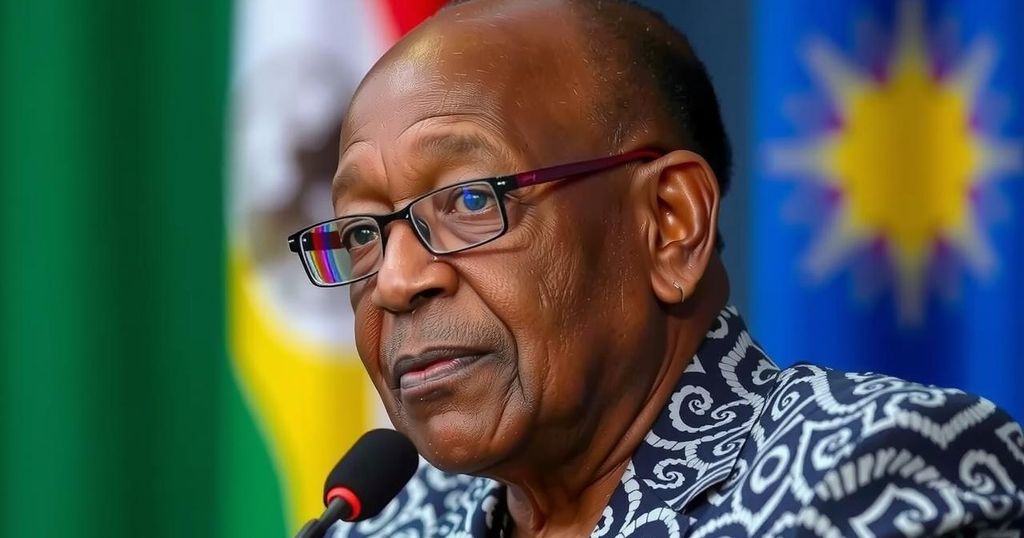Botswana President Acknowledges Electoral Defeat, Marking End of BDP’s Six-Decade Rule
Botswana’s President Mokgweetsi Masisi has conceded defeat in the parliamentary elections, resulting in the loss of his party’s majority after almost sixty years in power. The opposition coalition, led by Duma Boko of the UDC, is expected to take office, reflecting a significant political shift in the country. Economic challenges, particularly a downturn in the diamond market, may have influenced voter sentiment.
In a significant political shift, President Mokgweetsi Masisi of Botswana has acknowledged his party’s defeat in the recent parliamentary elections, which concluded nearly sixty years of rule by the Botswana Democratic Party (BDP). Initial reports from both the independent Mmegi newspaper and state radio indicate that the BDP suffered a substantial loss, as the opposition coalition, known as the Umbrella for Democratic Change (UDC), emerged victorious in a majority of constituencies. With preliminary results indicating that the UDC leader, lawyer Duma Boko, is poised to take over the presidency, Masisi expressed his respect for the electoral outcome at a press conference, stating his intention to support the incoming administration despite his desire to continue in office. Analysts had anticipated a competitive election; however, the extent of the defeat has taken many by surprise. Historically, the BDP has been at the political helm of Botswana since the nation gained independence from Britain in 1966. As per the results from a number of constituencies, including 36 out of 61, the UDC has secured 25 seats, while the BDP has only managed to claim one. For a majority claim, a party must obtain at least 31 constituencies, indicating a landmark change in the nation’s political landscape. Botswana has long been recognized for its stability and prosperity, largely attributable to its diamond resources and a relatively small populace benefiting from free healthcare and education. However, recent declines in the diamond market have strained the country’s financial situation, accentuating the need for economic diversification.
Botswana has experienced a noteworthy political transition with the recent elections marking the end of an era dominated by the BDP, which has been in power since the country’s independence in 1966. The elections held in this southern African nation are significant not only due to their historical context but also their implications for its governance and political future. The election results suggest a desire for change among the electorate, possibly fueled by economic challenges, particularly those linked to the diamond industry, which has traditionally underpinned the nation’s prosperity. The transition in leadership could bring new policies and opportunities to address the pressing economic issues facing Botswana.
In conclusion, President Mokgweetsi Masisi’s concession marks a pivotal moment in Botswana’s political history, signaling the end of six-decades of BDP administration. The successful bid by the UDC under the leadership of Duma Boko reflects a potential shift in governance and a response to economic challenges faced by the nation. The implications of this electoral outcome could pave the way for transformative policies that may alter Botswana’s economic landscape, particularly in light of recent struggles in the diamond sector.
Original Source: www.theguardian.com




Post Comment